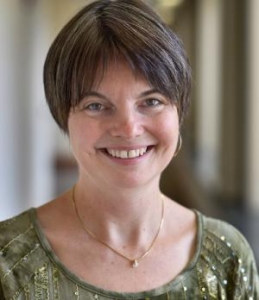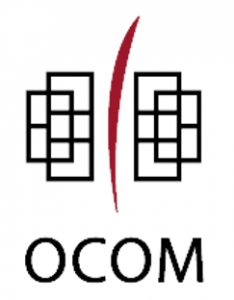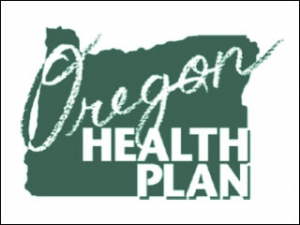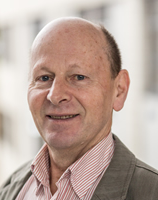Evidence opens Medicaid in Oregon to acupuncture
May 2, 2017
 by John Weeks, Publisher/Editor of The Integrator Blog News and Reports Presentations on the differing types of medical research tend to present a story-book arc. The narrative sweeps across the tops of bench science, to controlled trials, to “translational” examinations of real-world effectiveness and those dirty businesses of examining costs and supporting decisions on business models. The pot at the end of research’s idealized rainbow is the evidence-informed access to covered services.
by John Weeks, Publisher/Editor of The Integrator Blog News and Reports Presentations on the differing types of medical research tend to present a story-book arc. The narrative sweeps across the tops of bench science, to controlled trials, to “translational” examinations of real-world effectiveness and those dirty businesses of examining costs and supporting decisions on business models. The pot at the end of research’s idealized rainbow is the evidence-informed access to covered services.  From their own silos, researchers can’t typically see the steps that constitute the tissue that connects one end of research to the covered practice of health and medicine. In a recent presentation,“The Power of Research in Healthcare Policy,” Laura Ocker, LAc, past president of the Oregon Association of Acupuncture and Oriental Medicine (OAAOM), told an instructive story for integrative healthcare practitioners. She demonstrated how a collaboration between professionals and academics in compiling and presenting emerging evidence leveraged vastly-expanded coverage of acupuncture in Oregon’s Medicaid program. In 2010, Ocker became part of the legislative leadership for OAAOM. She brought with her a passion born of a half dozen years of working, in a limited capacity, to provide acupuncture to the underserved populations through one of Oregon’s Federally Qualified Health Centers (FQHC). She saw the value of acupuncture first-hand for the five conditions for which acupuncture was then a covered service:
From their own silos, researchers can’t typically see the steps that constitute the tissue that connects one end of research to the covered practice of health and medicine. In a recent presentation,“The Power of Research in Healthcare Policy,” Laura Ocker, LAc, past president of the Oregon Association of Acupuncture and Oriental Medicine (OAAOM), told an instructive story for integrative healthcare practitioners. She demonstrated how a collaboration between professionals and academics in compiling and presenting emerging evidence leveraged vastly-expanded coverage of acupuncture in Oregon’s Medicaid program. In 2010, Ocker became part of the legislative leadership for OAAOM. She brought with her a passion born of a half dozen years of working, in a limited capacity, to provide acupuncture to the underserved populations through one of Oregon’s Federally Qualified Health Centers (FQHC). She saw the value of acupuncture first-hand for the five conditions for which acupuncture was then a covered service: - Abuse or dependence on psychoactive substances
- Tobacco dependence
- HIV disease (including AIDS and related opportunistic infections)
- Substance-induced delusional and mood disorder and intoxication
- Substance-induced delirium
 A formal 2011-2014 partnership forged between her professional association and the research department of the Oregon College of Oriental Medicine (OCOM), which became critical to making the case. Ocker credits OCOM’s Ryan Milley, LAc, and Shelly Stump, JD, for guidance in developing the project, as well as Ben Marx, MACOM, LAc, the interim director of research. To know how to build their case—and to discover what evidence would be best to assemble—they went straight to their intended audience, the Oregon Health Commission. The OHC’s representatives made it clear that their decision process was “all about evidence.” Their preferences followed the usual hierarchy of evidence, with systematic reviews and evidence-based guidelines at the top; guidelines of professional societies and coverage by private health plans in the mid-range; and case reports and unpublished studies straight to the round-file. Expanding Coverage The team gathered data, focusing on conditions related to pregnancy, depression and mood disorders, tension headache, and migraine. Ocker and Miley then presented the case to the Oregon Health Services Commission. In April 2012, these gained coverage under the Oregon Health Plan. Work the next year, with a new setoff students, focused on a set of conditions, including acupuncture for the neck and osteoarthritis of the knee. This time, Marx and Ocker made the presentation, making the list of covered services. However, as Ocker shared, their evidence for osteoarthritis of the hip and shoulder pain did not make the grade. (The partnership’s historic collaboration was written up by a group of the students for Acupuncture Today.)
A formal 2011-2014 partnership forged between her professional association and the research department of the Oregon College of Oriental Medicine (OCOM), which became critical to making the case. Ocker credits OCOM’s Ryan Milley, LAc, and Shelly Stump, JD, for guidance in developing the project, as well as Ben Marx, MACOM, LAc, the interim director of research. To know how to build their case—and to discover what evidence would be best to assemble—they went straight to their intended audience, the Oregon Health Commission. The OHC’s representatives made it clear that their decision process was “all about evidence.” Their preferences followed the usual hierarchy of evidence, with systematic reviews and evidence-based guidelines at the top; guidelines of professional societies and coverage by private health plans in the mid-range; and case reports and unpublished studies straight to the round-file. Expanding Coverage The team gathered data, focusing on conditions related to pregnancy, depression and mood disorders, tension headache, and migraine. Ocker and Miley then presented the case to the Oregon Health Services Commission. In April 2012, these gained coverage under the Oregon Health Plan. Work the next year, with a new setoff students, focused on a set of conditions, including acupuncture for the neck and osteoarthritis of the knee. This time, Marx and Ocker made the presentation, making the list of covered services. However, as Ocker shared, their evidence for osteoarthritis of the hip and shoulder pain did not make the grade. (The partnership’s historic collaboration was written up by a group of the students for Acupuncture Today.)  The evidence that the team developed and used is available on the Society for Acupuncture Research website. Ocker has also made available multiple documents that can guide interested parties more deeply into how to engage such a process. These include the recent Oregon Health Plan remarkable decision, following the ascendency of the opioid crisis, to “prioritize therapies such as chiropractic and osteopathic manipulation, physical therapy, acupuncture, cognitive behavioral therapy, graded exercise therapy, interdisciplinary pain management, yoga, and massage—and a treatment plan to stay active and return to previous function—over ineffective surgeries and narcotics.” Ocker believes that the looming opioid crisis has been wind at their backs during the entire process. Practitioner payment categorized under the Medicaid coverage was described by Ocker as being neither the best nor the worst among Oregon’s payers. The typical payment can vary significantly from $21 to $58. Variables include the billing strategy of the FQHC, length of the treatment, and whether evaluation and management is included. Payment to the acupuncturist may also be different than the payment the FQHC receives from the state. Information on the state's payment rates is here. Comment: Immediately after Ocker’s presentation, I had a chance to see, a segment of the research rainbow, if not the whole, in all its glory. Ocker made a point in her presentation naming all the authors when she listed the most useful articles that were used to build the profession’s evidence case. She knew that many of these researchers on whom her policy work relied were there, in the room, and wished to honor them.
The evidence that the team developed and used is available on the Society for Acupuncture Research website. Ocker has also made available multiple documents that can guide interested parties more deeply into how to engage such a process. These include the recent Oregon Health Plan remarkable decision, following the ascendency of the opioid crisis, to “prioritize therapies such as chiropractic and osteopathic manipulation, physical therapy, acupuncture, cognitive behavioral therapy, graded exercise therapy, interdisciplinary pain management, yoga, and massage—and a treatment plan to stay active and return to previous function—over ineffective surgeries and narcotics.” Ocker believes that the looming opioid crisis has been wind at their backs during the entire process. Practitioner payment categorized under the Medicaid coverage was described by Ocker as being neither the best nor the worst among Oregon’s payers. The typical payment can vary significantly from $21 to $58. Variables include the billing strategy of the FQHC, length of the treatment, and whether evaluation and management is included. Payment to the acupuncturist may also be different than the payment the FQHC receives from the state. Information on the state's payment rates is here. Comment: Immediately after Ocker’s presentation, I had a chance to see, a segment of the research rainbow, if not the whole, in all its glory. Ocker made a point in her presentation naming all the authors when she listed the most useful articles that were used to build the profession’s evidence case. She knew that many of these researchers on whom her policy work relied were there, in the room, and wished to honor them.  When I arrived at the front of the room to thank her for her talk, I found myself standing beside one of those researchers, Hugh MacPherson, PhD, MBAcC. The holder of first and only endowed professorship in acupuncture research in Great Britain, MacPherson is one of the principals in the Acupuncture Trialists Collaborative that is providing global leadership in data gathering. He was co-author on work that was meaningful in by the neck pain and osteoarthritis cases. As we chatted about the successes of Ocker and her colleagues in Oregon, MacPherson acknowledged that, when he chose to focus his career on acupuncture research over two decades ago, he was not thinking then that part of his legacy might be opening the acupuncture treatment to thousands of underserved people thousands of miles away.
When I arrived at the front of the room to thank her for her talk, I found myself standing beside one of those researchers, Hugh MacPherson, PhD, MBAcC. The holder of first and only endowed professorship in acupuncture research in Great Britain, MacPherson is one of the principals in the Acupuncture Trialists Collaborative that is providing global leadership in data gathering. He was co-author on work that was meaningful in by the neck pain and osteoarthritis cases. As we chatted about the successes of Ocker and her colleagues in Oregon, MacPherson acknowledged that, when he chose to focus his career on acupuncture research over two decades ago, he was not thinking then that part of his legacy might be opening the acupuncture treatment to thousands of underserved people thousands of miles away.



















SHARE